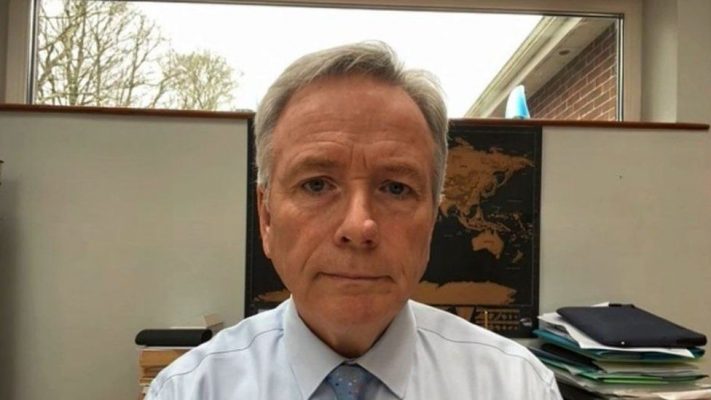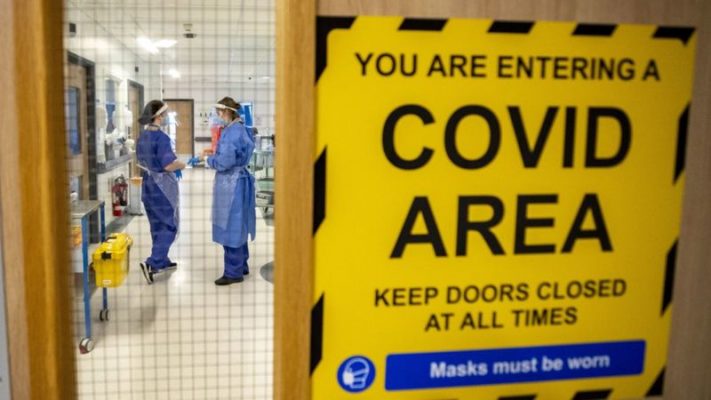
Derry GP Dr Tom Black chair of the BMA in the North of Ireland
In a new report, ‘Rest, recover, restore: Getting UK health services back on track’, the British Medical Association (BMA) in the North of Ireland says Covid-19 has left the health service running on empty.
It says staff are burnt out, disillusioned, and even considering leaving the NHS due to the pressures of the past year.
Derry GP Dr Tom Black, chair of the BMA’s Northern Ireland council, said: “Our own research shows that doctors are suffering from exhaustion and burnout and many of them need to take a break before we begin to address the long-standing issues in our health service.”
Last month, Health Minister Robin Swann acknowledged that medical staff will need “respite” from the pressures of the Coronavirus pandemic before they can begin “high pressure” work to reduce surgery waiting lists .
Mr Swann told Stormont’s health committee that staff would require “a break” for their “psychological well-being” following a surge in Covid-19 patients after Christmas.
Dr Black added: “We welcome the minister’s recent comments on this issue and we know the Trusts are working up plans to ensure staff do get a break and that is very welcome.
“But there is a risk that if we push to get back to normal too quickly then we could be faced with increasingly high absence rates and staff reducing their hours.”
Against a backdrop of current workforce shortages, patient demand outstripping staffing levels and a shortage of GPs, the BMA says the need for a strong and healthy workforce is obvious.
The doctors’ union has set out a series of recommendations to ensure that services resume safely for both staff and patients
These include all governments and system leaders across the UK having an honest conversation with the public about the need for a realistic approach to restoring non-Covid care, and support for systems to tackle the backlog.
The BMA is also calling for the health, safety, and mental well-being of the workforce to remain a top priority, additional resourcing to help tackle the backlog and measures to both expand system capacity and the workforce while also retaining existing staff.
 The BMA report suggests measures for UK governments to make it easier for retired doctors to re-join the workforce and to take meaningful action to retain existing doctors.
The BMA report suggests measures for UK governments to make it easier for retired doctors to re-join the workforce and to take meaningful action to retain existing doctors.
According to the latest BMA tracker survey published last month, nearly half of the North of Ireland respondents (47%) reported feeling they were currently suffering from ‘any form of depression, anxiety, stress, burnout, emotional distress or other mental health condition relating to or made worse’ by their work.
In the same survey, 40% said their health and well-being was worse than during the first wave of the pandemic.
When asked if they have changed their career plans for the next year, 30% of doctors in the North of Ireland dsaid they were more likely to take early retirement, 28% were more likely to take a career break, and 18% said they would think about leaving the NHS for another career.
Tags:




